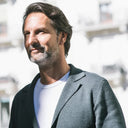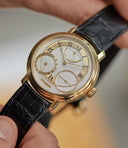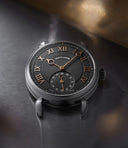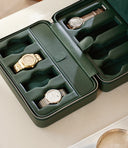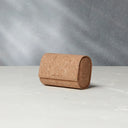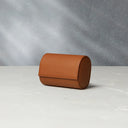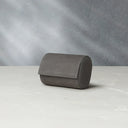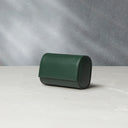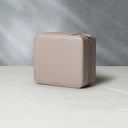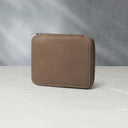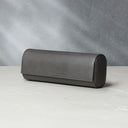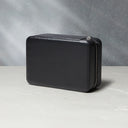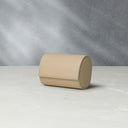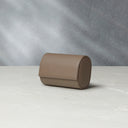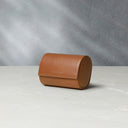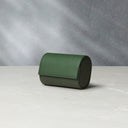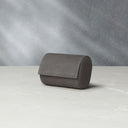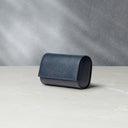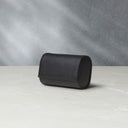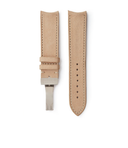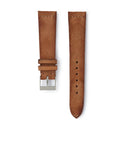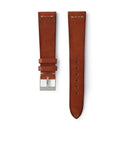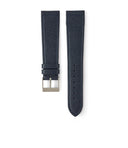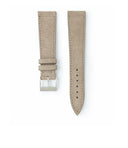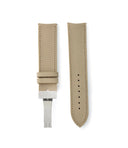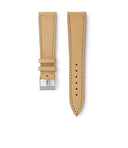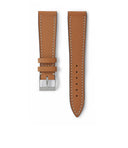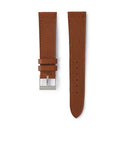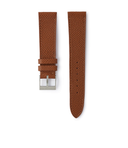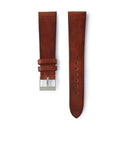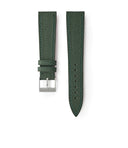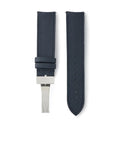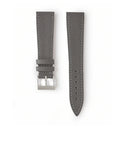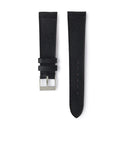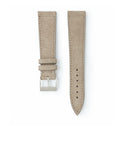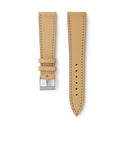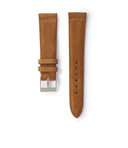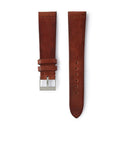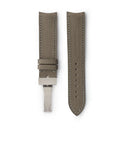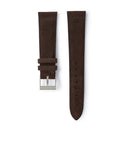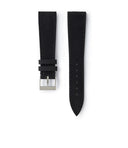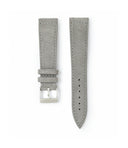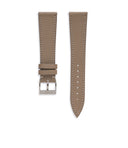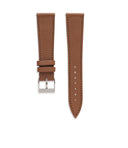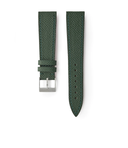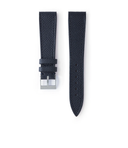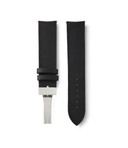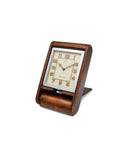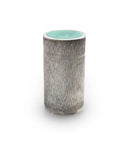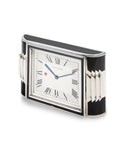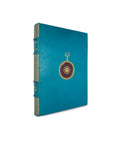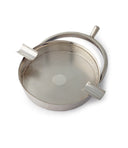About Town With: Timothy Small in Milan, Italy
What did you want to do when you were a kid?
I used to have pretty weird dreams as a kid, which is something my parents used to bug me about. Most kids wanted to be an astronaut, a cop, or something like that, but I had decided that I wanted to design cities.
Design cities, wow…
[Laughs] I just thought that would be the coolest thing you could do, I went through a phase of really wanting to be an architect or a designer of cities…
And what happened to that dream?
I rapidly forgot about that, I think, and since I was a teenager I wanted to be a writer or a filmmaker. Or something creative. But mostly I wanted to write.
How did you then get into journalism?
I kind of fell into it, because that could be a way to write and get a paycheck too.
You studied in England right?
Yeah, I studied politics, philosophy and economics at York University, and I then did a masters in History at SOAS. Directly after finishing my MA, I began writing for Vice Magazine in London, which was a much much smaller outfit back then. I had considered doing a PhD before that, but I realised in a flash moment that I didn’t want to just read books and write papers that no-one understands, or that only about ten other people in the world understand [laughs].
[Laughs] Fair enough…
You know, I loved reading and nerding out on on obscure stuff, but I didn’t want that to be my whole life.
You wound up launching the Italian edition of Vice magazine, didn’t you?
Yeah, exactly, which was entirely by chance. I had been working in the London office and one day the phone rang, and I was the only person in the office, so I picked it up. I think everyone was out for lunch or something. The person on the phone was Italian, he said something like, “Hi, I would like to launch Vice in Italy, who do I talk to.”

And what did you say?
Well, I responded in Italian, to which he was quite taken aback. Six months later, I was back living in Milan and I was the editor in chief of the Italian edition of Vice Magazine. That guy ended up being the publisher.
Later down the line you launched your own magazine around the subject of football, right?
Yes, it was called L’Ultimo Uomo, or “The Last Man”, as it translates to. I launched it with Daniele Manusia, who is the current editor in chief. And then I launched an online pop culture and cultural criticism magazine called Prismo. But L’Ultimo Uomo was the big one.
This brings us neatly onto the first stop on our trip around Milan…
Yeah, well football has always been a passion of mine and the idea to start a magazine about it began as a very amateurish concept. It was just me and a couple of other guys, all football fanatics, who shared a journalistic background. The main source of sports journalism in Italy is a daily paper called La Gazzetta dello Sport, and while this is very much the mainstream source of information, and a pretty great one at that, it doesn’t really have any long form articles or room for more interesting, weird observations about sport.
Had you come across this kind of thing elsewhere?
Yeah, these kinds of magazines existed in other territories, with beautiful photography and interesting articles, but never in Italian. These kinds of newspapers, like Gazzetta, focused on what happened the day before or what was happening that day, it was very much a daily news sort of deal, so there wasn’t really room to tell stories, to analyse games deeply, or just to be funny, you know?
"The first month we got around 27,000 hits on the site, and by three months we were hitting 100,000. The growth was consistent and rapid, by a year we were touching on a million."
Right…
We started with an online magazine and right away, there was a clear thirst in the market for this kind of content. The first month we got around 27,000 hits on the site, and by three months we were hitting 100,000. The growth was consistent and rapid, by a year we were touching on a million.
Wow…
We didn’t really see it like a business from day one, we just thought it would be a fun side thing because I was writing for GQ at that time and had begun seriously pursuing filmmaking. But then it kind of exploded in our hands, and brands started approaching us for commercial projects and it all grew from there. We then sold half of the site to a digital agency, and then sold the whole thing to Sky.
What is it about football that speaks to you?
You know, I’ve been thinking about this a lot lately, and I understand very clearly now that the whole thing is completely silly. It’s insane to get so angry and feel so passionate about something that literally means nothing to you and your life. It’s ridiculous [laughs].
[Laughs] You said it…
But part of me loves it precisely because it’s ridiculous. It’s a way for hundreds of thousands of people, if not millions of people to share the same story, that is completely meaningless, but at the same time extremely meaningful.
Almost like a religion, in some respects…
Yeah, absolutely. There’s something completely irrational about it, if you look at the very basis of it. And you know, to have religion you have to have faith, and there’s a point at which you’re not arguing rationally anymore, because of that faith. You just believe. I think being a sports nut is similar in that way. At some point you’ve just got to go with it, right? [laughs]

Clearly the sport is very important to Italy as a whole, right?
Definitely, growing up in a country like Italy, where football dominates all of the conversations, you have to make a choice, do I say yes to all this, and by all this I mean to, I guess, living in a society, right? [laughs]
[Laughs] Right…
So, do you say yes to having random half hour long conversations with a stranger that could be an 85 year old dude from the other side of the country? Or, do you say no, to be one of those people who just don’t like football, and never have those experiences. To me, the obvious answer was to go with it.
The stadium you’ve brought us to is which of the two big Milanese teams?
AC Milan, my friend…
Run us through the typical visit here…
A typical visit consists of either driving or taking the subway over to the stadium, having a beer with your friends, singing on the way in while you walk towards and into one of the most impressively scaled stadiums in the world. The stadium is absolutely huge, I think it’s one of the most impressive feats of engineering in Europe. 90,000 seats.
It is absolutely gigantic, so much so that fitting the entire stadium in a photo was a genuine problem…
[Laughs] Exactly. So you sit down with your friends, the same friends you go with to every single game and then you watch and participate in probably the 500,000th chapter of the history of this game. Your team either does well, or not so much, and you leave either elated, or not so much. You talk about what happened for the next week or so. And then you do it all again [laughs].
"I don’t think you get an honest picture of this city without going there. The team I support was founded in 1899, that’s more than a century of history, of people in this town going nuts over dudes in a red and black shirt, kicking a ball around."
And why is it important to come and see a game or just the stadium itself?
I don’t think you get an honest picture of this city without going there. The team I support was founded in 1899, that’s more than a century of history, of people in this town going nuts over dudes in a red and black shirt, kicking a ball around. It’s a big part of the city’s popular culture.

Sticking with quintessentially Italian things, the next stop is coffee…
Yes, but here’s the thing, Italians love thinking they’re the best at… pretty much everything. You know, food, clothes, cars, football, landscapes, art, right?
Yes, without a doubt, and you’ve brought us to a Canadian-owned coffee shop, in Milan…
[Laughs] Exactly. Coffee is very special to the people of Italy and you can get a pretty decent cup of coffee almost anywhere. In Italy, and this is very unique to Italy, you’re never, ever, wherever you may be, more than a mile away from a cup of pretty decent espresso which will only ever cost €1.
This is a sort of unwritten law in Italy, isn’t it?
Absolutely, if a coffee bar opened tomorrow and said, “Our coffee is €2,” no-one would go there. Like, absolutely no one.
So, the Canadian coffee bar you’ve taken us to is called what?
Orsonero Coffee.
"Italians have a very complicated relationship with their traditions, we hold them a bit too sacred sometimes."
Is it not blasphemous to recommend a non-Italian location?
Italians have a very complicated relationship with their traditions, we hold them a bit too sacred sometimes. And this is certainly the case with coffee, and particularly espresso. We think that we’ve perfected the formula, but it’s just not true. There’s great coffee in a lot of countries and it’s always different, right?
Right…
Coffee isn’t made in Italy. It’s not produced in Italy. It’s not picked in Italy, nor did it come to Europe from Italy; it just so happened that we invented the espresso cup, which started a phenomenon across Italy which we then exported. What’s great about what’s happening with coffee right now, is that we are beginning to understand that coffee is not only about espresso and cappuccino, it’s about different types of roasts, different beans, and that there are a lot of ways to prepare a great cup.
The kind we tried was a pour-over…
Yeah, and these Orsonero guys really care about what goes into making a great cup of coffee. At a certain point, you really need to respect things that are well made, things that people put a lot of passion into, who share that passion, the knowledges and awareness of techniques. These guys take a great deal of pride in what they do, and how they do it. And I respect that a lot.

So learning about these things is something of importance to you?
Definitely, I love to nerd out and get into the details of these things. I think that’s something I’ve started to realise in the past few years, that products are not just their function. They’re also things with history and art and love in them, and you can appreciate them for a great many reasons.
Absolutely…
I really like that way of thinking about things, recently. You can look at anything and think, what goes into this? How can this be better, how can we improve on this, how can we learn more about this?
The history of these things also?
Yeah, I mean, coming back to the origins of coffee, that’s interesting in its own right. The Arabs brought coffee to Europe, and then it was brought to Venice by the Turks, you know, people were drinking coffee in Amsterdam, London, Vienna and Paris in the 1600s, 1700s and then a few years after that it became a particularly special thing here in Italy, which we poured love and passion and a general “will to perfect things” into. It’s interesting. Italians love that.
Now, the next location is in some regards related to the traditions of Italy…
Yes. My other great love, in terms of countries. Japan. Japanese culture shares a great deal of similarity to Italy in that sense.
And your fascination with process and history makes a lot of sense, given that you’re very taken by Japanese culture, right?
I think that’s true, yeah. I always joke about this, but there’s something quite true to the fact of whenever you buy a well made Japanese product, there’s almost always a guy behind it—or a bunch of guys and gals, too—who devoted their whole life and soul, really, to making that product the best is could possibly be, right?
For sure…
And man, that’s something that I deeply respect.

So the next stop is Tenoha. Tell us a little bit about this store…
Tenoha is a Japanese concept store which opened in Milan and it really clearly demonstrates the similarities between Milan and Japan, the industriousness, the labour, the will towards elegance, the fact that they’re both places with deeply rooted connections to craftsmanship.
"The Japanese approach to making nearly anything, like Italy, is steeped in tradition and it is going to be seriously well made."
And that craftsmanship, like you mentioned, it’s not frivolity for the sake of it with these kinds of things…
Exactly, There’s always a reason and a philosophy behind these products. The Japanese approach to making nearly anything, like Italy, is steeped in tradition and it is going to be seriously well made. You aren’t going to find something crude and cheap or even so much crude and expensive, stuff which is only expensive because they covered it in diamonds [laughs], you know?
[Laughs] Absolutely.
Their design philosophy is very interesting too, because the finer details and harmony of a product is clearly very important. They’re generally making things that are widely considered to be beautiful designs. The Japanese… they’re certainly not a culture that doesn’t appreciate the aesthetic side of things. The balance between form and function.
Naturally, you’re a big fan of Seiko watches…
Yeah, I’m proud to wear a Japanese watch almost every day.
You’re kind of obsessed with Japan really, aren’t you?
[Laughs] Yeah, man. My girlfriend cooks a bunch of Japanese food, we eat Japanese all the time, I drink Japanese whisky, I read Japanese novels, I love Japanese cinema. I even have a Japanese tree in my garden. It’s weird.
You were kind of a late bloomer to watches, how did you get into them?
Well, you come to a point in your life when you realise that when you love something there’s always something in your childhood that’s very connected to that thing. I was never a watch guy growing up, like, at all, and for me it was very connected to my job, because when I started running Esquire in Italy, I realised that watches were clearly important to the brand.

And so, like a lot of other things you’re interested in, you began researching?
Yeah. I read up on it a lot. And at first it was a necessity for my job, but as it often goes, I ended up falling in love with the object of my nerd-outs. And then I realized that, as a kid, I used to collect Swatch watches with my dad. So there’s the childhood connection!
"It’s a 1969 Seiko Speed Timer with a black dial, which was the first automatic chronograph ever produced, although a lot of Swiss companies will say that’s not the case."
A-ha! And the Seiko you have on at the moment is…
It’s a 1969 Seiko Speed Timer with a black dial, which was the first automatic chronograph ever produced, although a lot of Swiss companies will say that’s not the case.
A couple, probably…
[Laughs] Yeah. It’s a cool little watch, with a cool history. Seiko are an affordable jumping off point for vintage watch collecting, and I think they’re still one of the very under-appreciated brands. They’re damn cool, too. I mean, this one has a day date function, and the day is both in English and in Kanji.
You’ve started going a bit mad with them right?
Yeah, like many , I’ve been buying bits and pieces when I can on eBay with any spare cents I have. I’m kind of the same with a lot of things though, like Japanese whisky. I’ve got a dozen or so special bottles of whisky, just because I get obsessed.
A whisky collection is a dangerous one…
[Laughs] Can be. But I’m pretty good about separating the whiskies I end up drinking to the ones I collect and sell. But going back to the watches, these Seikos are great value for money. Truly. It’s hard to find watches with more history, cool designs, and affordable prices. And they’re work horse: many of them function with no issues and little to no service from the ‘60s. To me, that’s great. What other legit brand could you realistically build a 30-watch collection without a huge pile of money to burn through?
Certainly not many, but you did just dip your toe into the Rolex collecting pool…
I did, I did. I got serious, man. I’m a lucky guy, I just took delivery of the Pepsi GMT on the new Jubilee. And I love it.

The last stop on our collection of must-visit places in Milan is what?
It’s a natural wine bar, bakery and restaurant called Forno Collettivo.
How did you become interested in natural wines?
Well, I’ve always been a huge fan of wine and my dad is a big wine guy too, so I kind of grew up in it, but a couple of years ago I started drinking a few bottles of slightly more obscure things and I remember thinking how different and unique tasting these bottles were.
And these were natural wines?
Yeah, you know, there’s so much variety in that world, often in what a traditional winemaker would call a “mistake”. Normal wines are great, but they’re a little safe, they’re supposed to be a certain way and sometimes they are and sometimes they get close, and that’s that. Natural wine is a bit more fun. I want to try them all. It’s the collector, again.
"Everyone’s just snobbing each other on everything, you know, like oh you’re one of those guys, or one of those guys. It’s endless. [laughs]"
Do you find that there’s a lot of snobbery from traditional wine drinkers towards natural wine?
Yeah, of course, but then there’s also a reverse snobbery. Everyone’s just snobbing each other on everything, you know, like oh you’re one of those guys, or one of those guys. It’s endless. [laughs]
[Laughs] Right…
I like drinking a nice traditional wine, but I will also drink a natural wine any time I get a chance. There are some equally bad natural wines though, they aren’t exempt from that.
Is there one in particular that stands out in your mind?
I think I opened a bottle of 2012 Terpin Sialis Pinot Grigio . It’s fantastic. It’s a deep brownish orange colour and it has the most amazingly rich, layered flavour. From Friuli Venezia Giulia, the northeast of Italy, where, in my opinion, you get the best white wines around. Together with France, of course.

It has a surprising flavour profile the first time, when you have certain expectations…
Yeah, it was a great bottle. We tried a couple of amazing other ones too, also that In Der Eben Gewurtstraminer one from 2015 is fantastic. It has the most amazing taste of mature apricots and honey; it’s amazing, it’s all over the place in the best possible way.
Would you say that the Terpin is a good introduction for those that haven’t yet tried a natural wine?
It really depends what you look for in a wine, you know, because I’ve always liked really mineral white wines. I’ve never been a huge red fan, because they always just end up putting me to sleep, and with the more complex bottles sometimes I feel like I’m drinking.. I don’t know… warm grape soup?
[Laughs] Ok…
If you’re similar to me, in liking mineral white wine, there are a lot of bottles that will blow your mind. Friulian whites, man…
Because this is nothing actually new over there, is it?
Exactly, there are a lot of producers that haven’t added any extra chemicals or sugars to their wines, that have been letting the natural fermentation process happen, since always. It’s just become cool in the past five years or so, and people started calling these “natural wines”, and young people have been making cool labels for them and boutique wine shops have been springing up and stocking them.
"This is about as traditional as it gets and that’s what interesting to me; it’s going back to a more weird, personal way of making wine, before people started standardising the winemaking process"
Historically this is how wine was made anyway, right?
Yeah, this is about as traditional as it gets and that’s what interesting to me; it’s going back to a more weird, personal way of making wine, before people started standardising the winemaking process to ensure consistency and scale for the mass market.

What is it that you like about this store in particular?
Quite a few things, obviously great wine, but their bread maker used to be the head baker at Noma in Copenhagen. She moved over here and started this place with these guys based out of Milan who also have a great wine bar called Champagne Socialist.
Interestingly named…
I mean, they have great natural wine, incredible bread and really good food. What more do you need?
One thing that stood out was the babka…
That babka is off the charts. Sometimes I daydream about that babka.
Now, we touched on this briefly before, but you’ve just taken a new role as Editor in Chief at Esquire Italy, how are you finding that?
I’m loving it, man! It’s an honour and a privilege to be able to work with such a historic brand, you know? A title that has almost defined men’s magazines for close to a century. It’s a huge responsibility, and I am truly doing my best to interpret the brand for a new Italian audience.
How did you approach that interpretation?
I had to break down what the magazine stands for, at its core, what is the spirit of this publication. To get to it’s DNA, in every part of the magazine, from fashion to politics to essays and humor, and culture, sports, travel, lifestyle. It’s a whole world. And then I tried to let that DNA grow anew here, in a different environment. It’s rare to be given the chance to interpret something with such a rich history. You have to treat it with a great deal of respect, but also, I think you can’t be too scared to push things forward.

Did your experiences with launching Vice, Prismo and L’Ultimo Uomo help with that?
It helped to some degree, but there is a lot more pressure around something of this magnitude. When we launched Vice, they wanted it to be the same in every country, you know? We merely made an Italian Vice. This is a big title, with a big history, and it’s sold for quite a few bucks in newsagents. And we had the freedom to do our thing, within obvious boundaries. So, sure, I have launched magazines before, but nothing like Esquire.
Well, thanks for taking the time and best of luck with Esquire Italy!
Sure, man! No problem. And thanks. It’s been a ride, man. You wouldn’t believe it.
You can follow Tim on instagram here.














